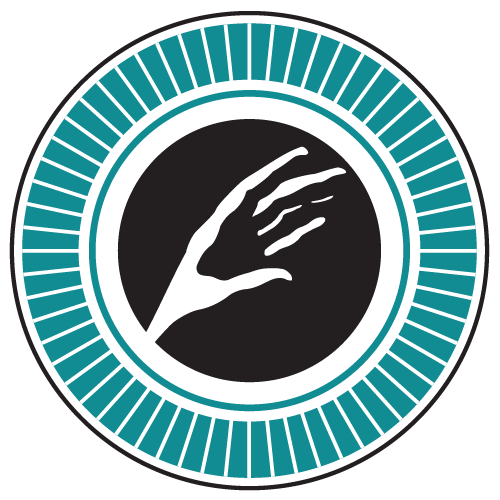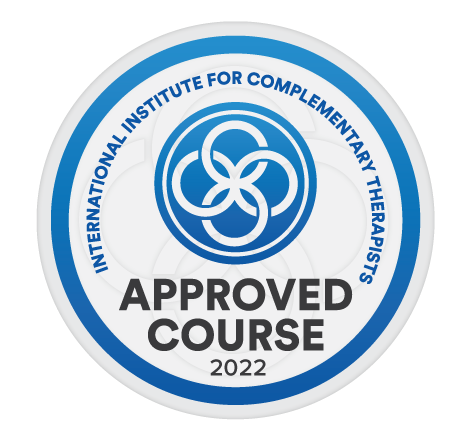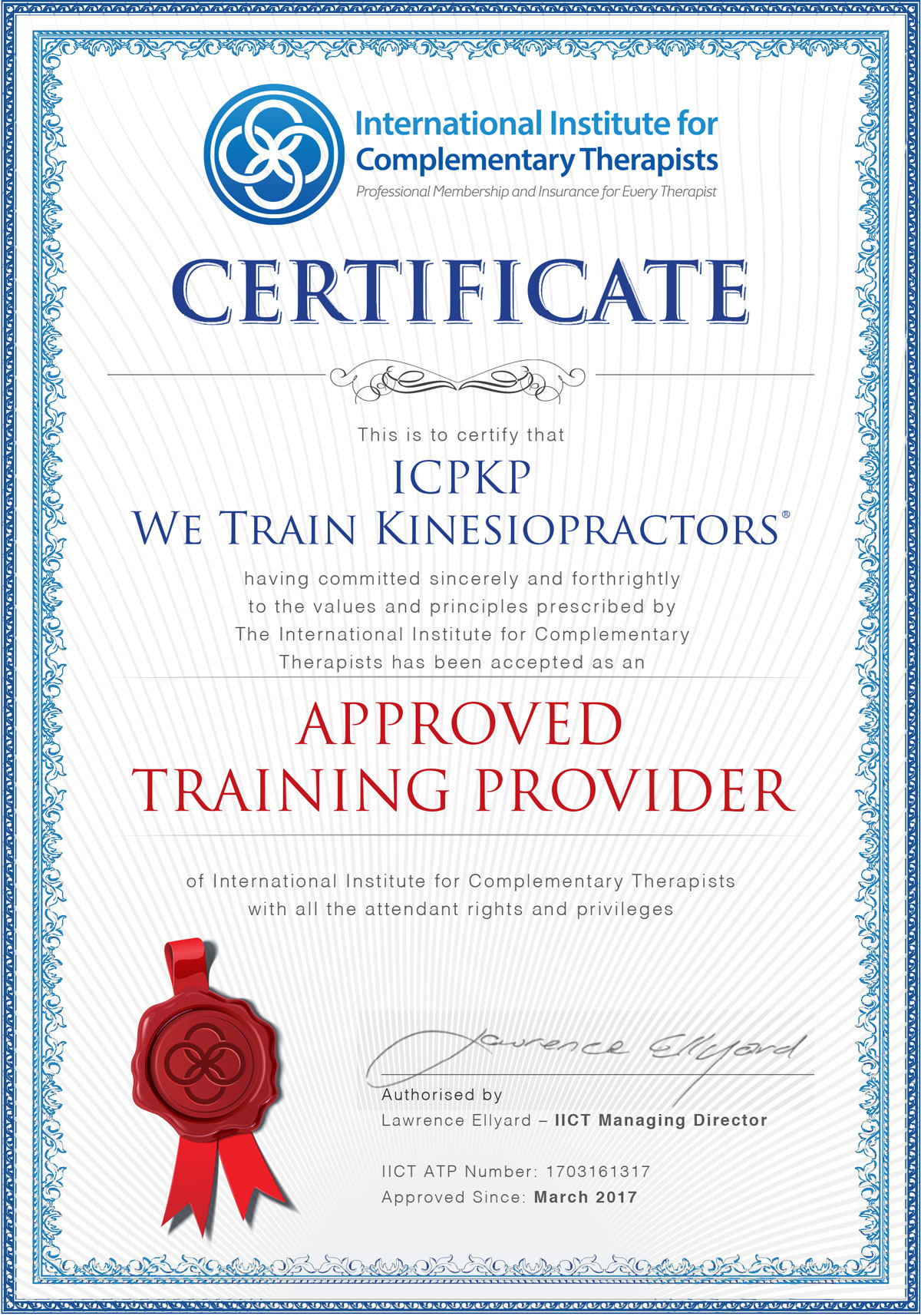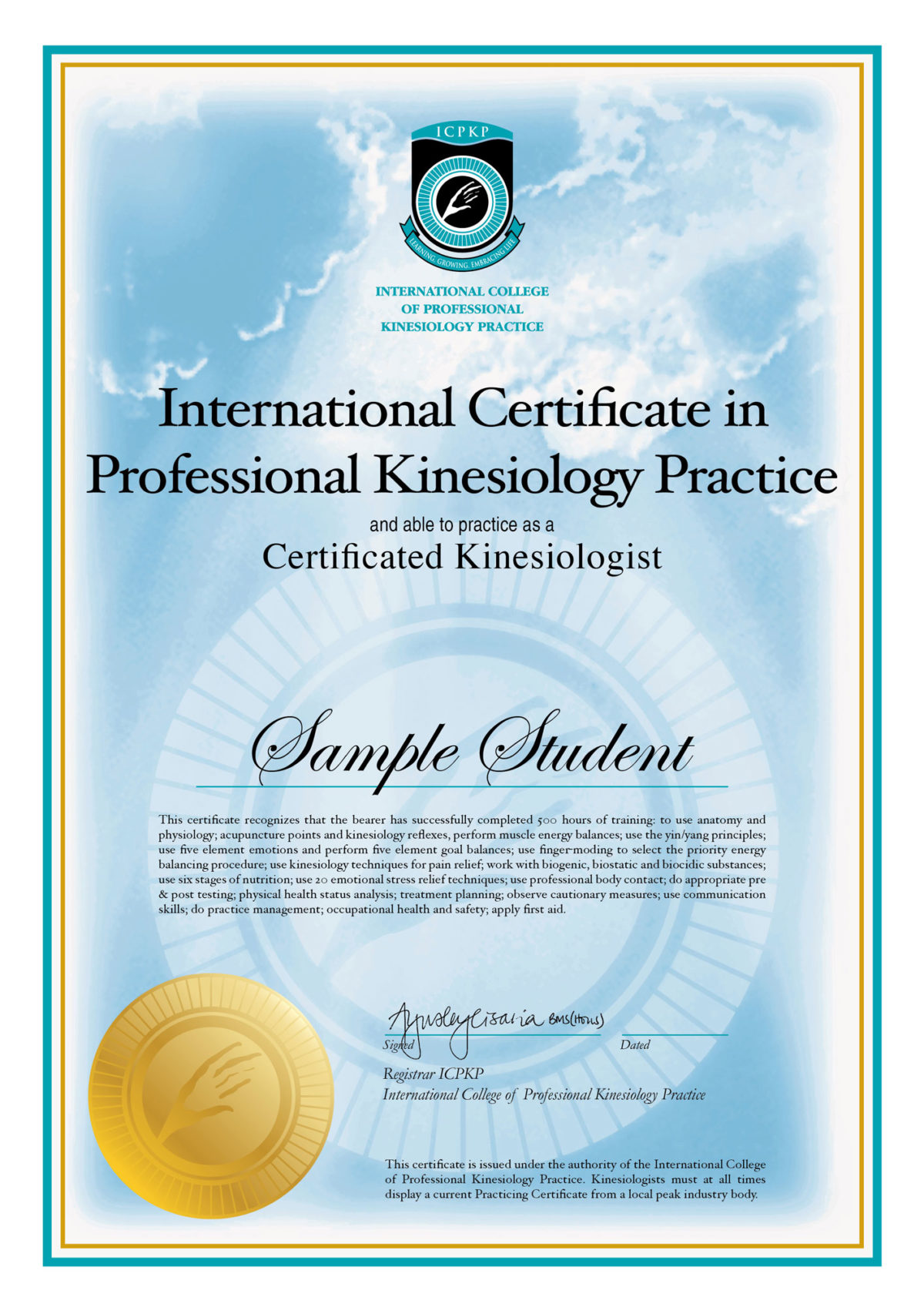
PKP™ Practitioner Certification – Kinesiopractic® level 1
Prerequisite: Certification in High Level Wellness & Vitality or TFH Graduates Cross-Over Course
Duration: 1 year
Most students begin their year of study with FPK 1 Foundational Principles of Kinesiology. For those who have come from a Touch for Health background, the FPK 2 pathway is available.
This qualification is approved by the International Institute for Complementary Therapies.
FPK 1 Foundational Principles of Kinesiology
The 6 units of kinesiology material that form the foundational principles of the ICPKP courses including those that are also taught to the lay-public.
Kinesiology is usually described as the study of movement, particularly human movement. This course introduces you to both the basics of kinesiology and also to the basics of PKP (BKP101 – BKP105 & RBT 201), the open-ended approach of Dr Bruce Dewe MD who is one of the Founding Fathers of kinesiology.
FPK 2 Crossover Course for TFH Graduates
FPK 2 is aimed at both seasoned practitioners who used TFH as the basis of their education and at recent TFH 4 graduates. To use the PKP™ Protocols and PKP™ Database effectively requires all 30+ Foundational Principles of PKP™ not covered in the TFH syllabus. These have been drawn together from BKP 101-105 into a single “Crossover Course” that allows TFH 4 graduates to proceed on to BKP 106 and beyond.
PKP 1 Foundational Principles of Professional Practice
Our 6 units of professional material based around ICPKP®’s unique ‘Finger Moding’ system, goal setting, emotions, extensive Database of Techniques and exclusive Balancing Protocol. It prepares you for the 11x Certification Programs that make up the four Diplomas of International Kinesiopractic® Education.
Once you have covered the foundational principles of kinesiology, you finally learn the iconic PKP fingermoding system and full balancing protocol. It is exciting to notice how the client’s body biofeedback dictates the unfolding of the balance. The practitioner does not need to have the answers, the client’s responses show the direction of the balance.
You can always have confidence even though you may not understand. You learn to trust the process because the process works. This is the magic of the PKP balancing process that only gets better as you practice and gain confidence in the protocol and learn more active listening and 20 mastery of emotional stress release skills to facilitate rapport, insight, and good choices.
You will also learn many pain release techniques, experience several dietary combinations before recommending them to clients, and will add more complex skills to your muscle-strengthening toolbox., for athletes and those with repeated muscle and postural problems.
You will study and formulate your personal code of ethics, boundaries and relationships and understand industry standards of client rapport and care.
You also develop more in-depth history taking and learn how to write case histories based on a series of balancing sessions.
Clinical work and personal experience with a Registered Practitioner
We require these to ensure adequate skill and mastery to succeed in full-time practice.
Homestudy and external units
ICPKP®’s Anatomy and Physiology is the basis of the physical side of PKP™. It includes specific health terminology to aid communication with both clients & health professionals. First Aid & Resuscitation must be taken at a level locally required in the workplace.
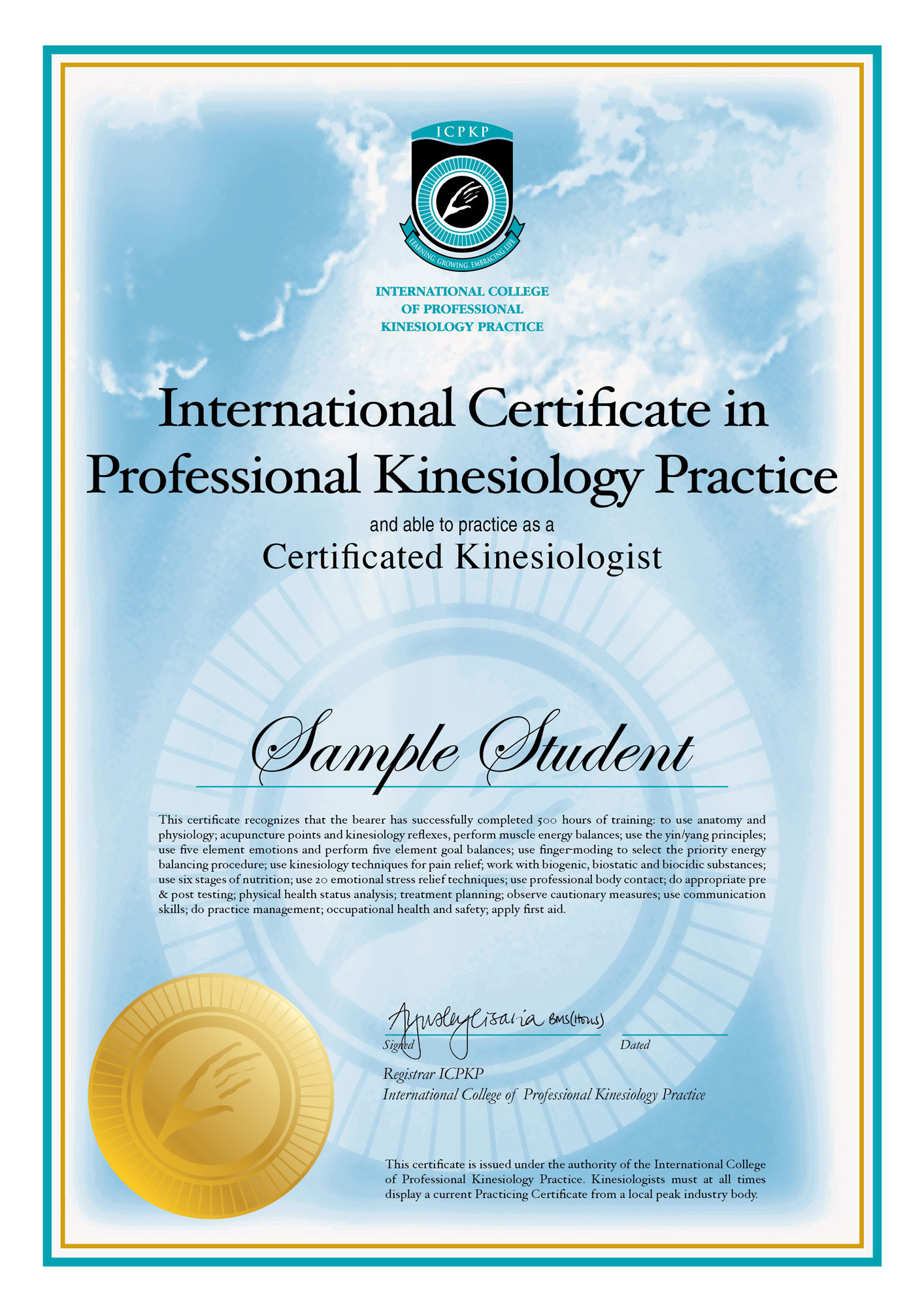
This Qualification includes:
LDP = Lecture, Demonstration, Practice.
HS = Home Study
OC = Off campus (taken with an external provider)
